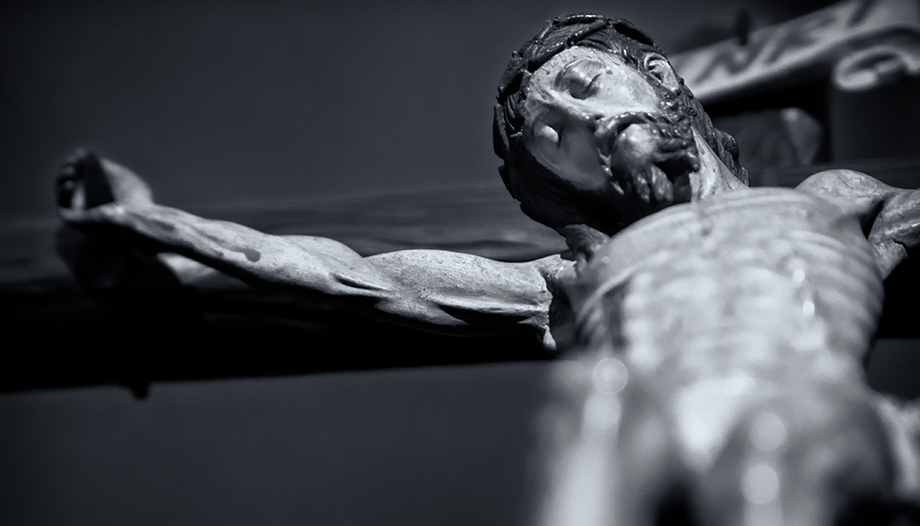Talking to a young Christian, he confessed to me that he did not understand why we Catholics put so much emphasis on the cross.
- We have to talk about life, we have to be normal people," he insisted. Being a Christian has to be fun.
- Yes, the Risen Jesus is life, and life in fullness," I answered from the vantage point of my more than fifty years of age. But the cross is essential to Christianity. We have no other Christ than Christ crucified.
- I don't understand the meaning of the cross, of pain in life," concluded my young interlocutor. Perhaps we should talk more about this.
That conversation reminded me of the lines of Antonio Machado in his famous poem The saetain which he sings of the crucified Christ of the gypsies, which concludes with a meaningful quartet:
Oh, aren't you my song!
Antonio Machado, The Saeta
I can't sing, nor do I want to,
that Jesus from the tree,
but to the one who walked on the sea!
I am afraid that the Church is always moving in this spiritual dilemma: to preach the cross in all its glory, does it not provoke rejection, as it did in this young man, as it did in so many who heard St. Paul? Scandal for the Jews, madness for the Greeks.
The preaching of the cross also remains today a scandal and folly. Because we can come to think that the preaching of the cross is a past spirituality, with roots in the Middle Ages. That today, in order to reach the men and women of the third millennium of Christianity, it is necessary to speak from other keys.
We may be tempted to silence the message of the cross, because it is uncomfortable, because it is a mystery that we cannot explain. Because, in the end, it hurts and provokes rejection. Today, as yesterday, people turn their faces to the one who hangs on the cross.
The dilemma of to what extent the cross has to be in the preaching and evangelization of the man of the XXI century seems to me to be nuclear. And I believe that it has very concrete and practical implications.
It is more attractive to preach a Christianity without the cross, without persecution, in which we are and live like everyone else, focused on enjoying life. But the question immediately arises: Can there be Christianity without the cross? Can we base our religion and our preaching on a proposal full of color and light, without the bitter shadows that Jesus' death on the cross inevitably entails?
It goes without saying that the whole paschal mystery must be preached, and that life and resurrection have the last word. That Jesus Christ is Life with a capital letter. And that in Jesus of Nazareth one discovers the joy and happiness that the world cannot give.
But our salvation has remained indelibly linked to the tree of the cross. And it is necessary that, as St. Francis Xavier did in his missionary journeys in the East, we show to this modern world, the world of the image, the torn and broken body of our Savior nailed to a cross.
And that we teach to live from the consequences that this entails. Because we follow a crucified man. Because, as St. Teresa of Calcutta told us, we must love until it hurts, as Jesus loved. Because only by looking at Jesus on the cross can we enter into the most unfathomable mysteries of our existence. Those that are not filled by 'the mysteries of our existence', but by the mysteries of our life.beer.
Moreover, from an educational point of view, it is essential to show our young people the other side of the coin of life: the cross. Only if we educate to learn to suffer will we be truly educating. Because suffering is a dimension linked to life and its limits. And therefore there is no true education if it does not teach young people to manage suffering properly.
This is indeed a madness and an educational scandal!
Because if there is one thing that marks the proposal of current education, it is that we must flee from suffering and from what it costs.
In a society of hyperprotective fathers, mothers and teachers, in which what counts is to cover the child's desires so that he/she is happy, we are taking away from them the ability to face difficulties, to learn to be frustrated, to learn to suffer.
Deep down, we think that they will have a hard time when they grow up and, in reality, we are depriving them of the tools to face with courage and strength the other side of life, that of pain, when it inexorably arrives.
As that young man said to me, we adults must speak to our young people about the cross and the scandal of following an outcast, a failure and despised by men.
Only if we educate our young people in this way will they be able to see Christ in the faces of the crucified of the earth, to embrace them and heal their wounds.
Even if it hurts.
Teaching Delegate in the Diocese of Getafe since the 2010-2011 academic year, he has previously exercised this service in the Archbishopric of Pamplona and Tudela, for seven years (2003-2009). He currently combines this work with his dedication to youth ministry directing the Public Association of the Faithful 'Milicia de Santa Maria' and the educational association 'VEN Y VERÁS. EDUCATION', of which he is President.








